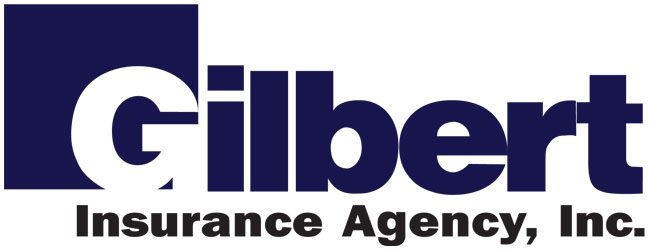
What Factors Into Commercial Auto Insurance Rates in Massachusetts?
Updated May 2020
Over the past several years, commercial insurance rates have been increasing across virtually all lines of coverage. However, the most dramatic rate spikes have come from just a few specific coverage classes, with commercial auto insurance being one of the main culprits.
There are many reasons insurers have been feeling the pressure to raise commercial auto rates, including the escalating rate of traffic accidents involving trucks and distracted driving (despite the enforcement of the new Massachusetts hands-free cell phone law).
In addition, dramatic increases in accident-related medical costs have resulted in much higher jury awards and settlements. Also, today’s tech-loaded vehicles have added to carriers’ loss issues – bumpers, windshields, and other commercial vehicle parts that used to cost a few hundred dollars to repair can now cost several thousands of dollars to fix.
While premiums on commercial auto policies are projected to continue to trend upward, it doesn’t mean, however, that your company has to grin and bear it. There are several key actions you can take that may help your company better manage rising commercial auto insurance costs.
How you may be able to gain some control over your commercial auto insurance rates
The best way to avoid a large commercial auto insurance premium rate hike at renewal time is to not be the squeaky wheel. In other words, you don’t want to have any accidents that involve your commercial vehicles.
For this reason, your main objectives should be addressing any risks that could lead to an auto insurance claim. Here are three recommendations for limiting your company’s exposure to a vehicular accident:
1. Recruit the most qualified drivers.
One of the most effective ways to help reduce the risk of an accident is by hiring the most qualified drivers. The hiring process should always include a careful check of an applicant’s driving history. If this record shows that an individual has had multiple accidents, speeding tickets, or other driving infractions, it’s a pretty good bet that this person is going to run into issues again in the future. It’s smart to make sure they aren’t driving your vehicles when they do. Instead, seek out drivers who have a clean driving record.
2. Provide a driver training program to new employees and ongoing education sessions.
From teaching defensive driving skills and driver safety rules to reviewing emergency procedures and administering annual road-tests, a well-thought-out driver training program is essential to developing responsible, and hopefully less accident-prone, drivers.
3. Implement a comprehensive vehicle repair, maintenance, and inspection plan.
Having a Corporate Auto/Fleet Safety Program that outlines the proper maintenance, inspection, and cleaning schedule for all of your company vehicles is critical to ensure accidents don’t happen due to faulty or worn-out equipment, such as balding tires or bad brakes.
If you establish effective hiring, training, and maintenance and repair programs, your insurer is likely to view your vehicles and your employees as much lower accident risks, which could lead to less of an increase, if any, in your commercial auto premium when you come up for renewal.
However, while keeping claims to a minimum typically plays a major role in your commercial auto insurance rate, it’s not the only thing that insurers will be reviewing when setting your premium. The Gilbert team wants to make sure you understand all of the factors that might be impacting your current and future rates.
Six factors that may be impacting your commercial auto insurance rates
In addition to your claims history, here are six other factors that carriers typically take into consideration before determining your commercial auto insurance rate:
1. Your Employees’ Driving Records
One of the most important factors in determining your commercial auto insurance rates are the driving records of your employees who are taking your vehicles out on the road. In fact, on an annual basis, your commercial auto insurance carrier reviews all of your drivers and evaluates their driving backgrounds. The insurer is particularly taking note of any accidents or moving violations, which would make a driver a higher risk to insure and could lead the insurer to increase your insurance premium.
2. Your Vehicle Classifications
There are three main business vehicle classifications – Service, Retail, and Commercial – and, within each of these classifications, there are even more ways an insurer will categorize your vehicles. In addition, you may have several different vehicles – cars, trucks, vans – that all need to be classed and rated separately. If you are not 100% sure how to class your vehicles and/or do not completely understand the right coverages and requirements for that classification, you could end up with the wrong insurance solution as well as delayed responses and settlement of any claims you have to file. Classifications also make up a significant part of your insurance premium, so if they are incorrect on your insurance application, you could end up paying 20 to 50% more than you should on your commercial auto insurance policy.
3. The Original Cost Of Your Vehicles
When you’re choosing to add vehicles to your fleet of cars, trucks, vans, taxis or limos, you will want to consider their “cost new” value as well as the cost of adding features because these can affect your commercial auto insurance premium.
4. Age Of Your Vehicles
This is an important factor that insurers consider because claim payments for physical damage losses are calculated based on a vehicle’s actual cash value (ACV), which declines as your vehicle ages. An aging vehicle actually has a positive effect on your premiums because, as your vehicle ages year after year, the premiums charged for physical damage coverage will decline. However, if you allow your fleet to get too old and/or have vehicles that fall into disrepair, then this could mean your premiums go back up as many insurers will see these vehicles as a greater risk for accidents.
5. Gross Vehicle Weight
While a standard passenger car generally weighs a few thousand pounds, your company’s small shuttle vans may weigh between 5,000 to 7,000lbs, and your fleet of 14-wheelers could weigh as much as 80,000 to 100,000lbs or more. The heavier the vehicle, the slower it moves on the road, the harder it is to bring to a stop, and the more difficult it is to turn. In addition, the more your commercial vehicles weigh, the more damage they can cause should there be an accident, which generally translates into a higher premium.
6. Radius Of Use
This is the distance a vehicle normally travels each day from the place where it is stored. There are three ways that your vehicle could be classified based on this mileage – local (up to 50 miles), intermediate (up to 51 to 200 miles), or long distance (more than 200 miles). Insurance carriers favor vehicles that travel less than 250 miles per day, regardless of whether your drivers stay in-state or travel between states. Commercial auto insurance premiums will be higher for vehicles that travel long distances because they simply have a greater opportunity to be involved in an accident versus those that travel short distances.
Additionally, any unique ways you use your vehicles, like hauling hazardous materials or transporting multiple people, may also have a significant impact on your insurance rates.
Gilbert Insurance helps you manage your commercial auto risks and your rates
The Gilbert Insurance team is here to provide you with advice and support for putting better risk management programs in place that may lead to lower commercial auto insurance premiums.
From conducting driver’s record background checks to assessing your strategy for recruiting and hiring drivers, to evaluating your claims history and offering solutions on how to limit these types of losses in the future, our team will assess all the areas that may affect your commercial auto insurance premium today and in the future.
Then, we will do everything we can to help you manage the major cost drivers we find and assist you in selecting the quality carrier who best fits your specific commercial auto insurance needs.
Please call us at (781) 942-2225 for a complimentary review of your existing policy or to get a quote.
